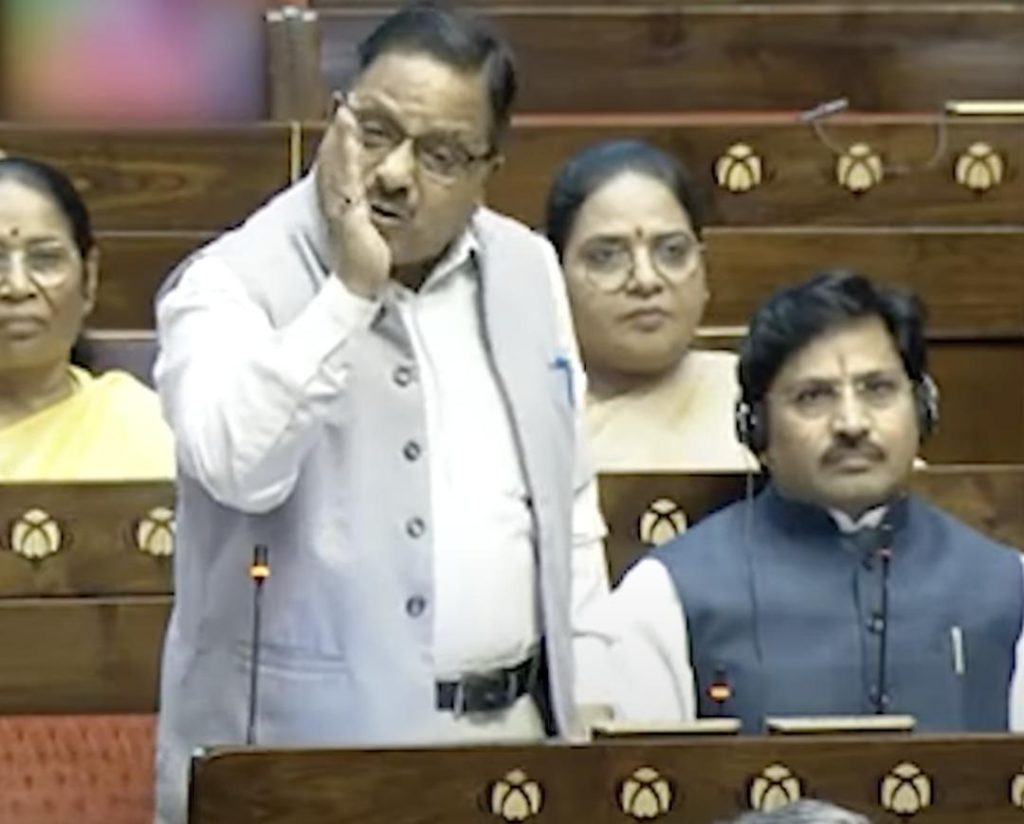
Should I Read Quran and Tell You What’s Written in It: BJP MP Radha Mohan Das on Waqf Bill
The Waqf Bill, a contentious piece of legislation aimed at regulating the management of Muslim charitable endowments, has sparked intense debate in India. The bill, which has been pending for some time, was recently taken up for discussion in the Lok Sabha, the lower house of the Indian parliament. During the discussion, BJP MP Radha Mohan Das made a remark that has left many surprised and curious. He asked if he should read the Quran, the holy book of Islam, and tell what is written in it.
The comment was made in response to the Waqf Board’s alleged lack of transparency in its management of properties and assets. Das, a member of the Bharatiya Janata Party (BJP), claimed that the Quran has specific provisions regarding the management of charitable endowments, and he was questioning the Waqf Board’s ability to manage properties without proper documentation.
“So, I ask, should I read the Quran and tell you what is written in it?” Das asked, addressing the Speaker of the Lok Sabha. “The Quran says that even if one rupee is given to anyone, there should be a written record…And you say you have so many properties without a record,” he added, emphasizing the need for transparency in the Waqf Board’s management.
Das’s statement has raised several questions and concerns. Firstly, is it appropriate for a politician to question the management of a religious institution? Secondly, does the Quran indeed have provisions regarding the management of charitable endowments? And thirdly, what is the significance of Das’s comment in the context of the Waqf Bill?
To understand the context of Das’s statement, it is essential to have a brief overview of the Waqf Bill and its significance. The Waqf Bill aims to regularize the management of Waqf properties, which are charitable endowments managed by the Waqf Board. The bill seeks to ensure transparency and accountability in the management of these properties, which are estimated to be worth several crores of rupees.
The Waqf Bill has been criticized by many, including the opposition parties, who claim that it is an attempt to encroach upon the religious freedom of Muslims. They argue that the bill seeks to impose a uniform system of management on all Waqf properties, which would undermine the autonomy of Muslim institutions.
Das’s statement can be seen as a reaction to these criticisms. By questioning the Waqf Board’s management of properties, he is implying that the board is not transparent and accountable, and that the government needs to intervene to ensure that the properties are managed properly.
But is Das’s statement justified? Does the Quran indeed have provisions regarding the management of charitable endowments? The answer lies in the Quran itself.
The Quran does have several verses that deal with the management of charitable endowments. For example, in Surah Al-Tawbah, Verse 34, it is written: “O ye who believe! what is the matter with you, that when it is said to you: Go forth in the way of Allah, ye are weighed down to the ground? Do ye abhor to furnish Allah’s fighting folk, though ye were scant and small but He could amplify you a multitude and make firm your feet?”
This verse emphasizes the importance of contributing to the cause of Allah, which includes the management of charitable endowments. In another verse, Surah Al-Baqarah, Verse 262, it is written: “O ye who believe! occupy not the places of the Prophet and your fathers, for the mosques are Allah’s, since which He has turned many a people in mercy from unbelief to Faith, to make ready for them a Fire of Punishment Most Grim.”
This verse stresses the importance of respecting the sanctity of mosques and other religious institutions, including those managed by charitable endowments.
However, these verses do not specifically address the management of charitable endowments. They emphasize the importance of contributing to the cause of Allah and respecting the sanctity of religious institutions.
Das’s statement, therefore, may be seen as an attempt to deflect attention from the real issue at hand. Instead of addressing the concerns raised by the opposition parties about the Waqf Bill, he is trying to shift the focus to the Quran and its provisions regarding charitable endowments.
In conclusion, Das’s statement about reading the Quran and telling what is written in it may have sparked curiosity and surprise, but it does not address the real issues surrounding the Waqf Bill. The bill remains a contentious piece of legislation, and its fate hangs in the balance.
As the debate continues, it is essential to focus on the real issues at hand, rather than getting bogged down in distractions. The Waqf Bill is a complex piece of legislation that requires careful consideration and debate. It is essential to ensure that the bill is drafted in a way that respects the autonomy of Muslim institutions while also ensuring transparency and accountability in the management of Waqf properties.
Source:





